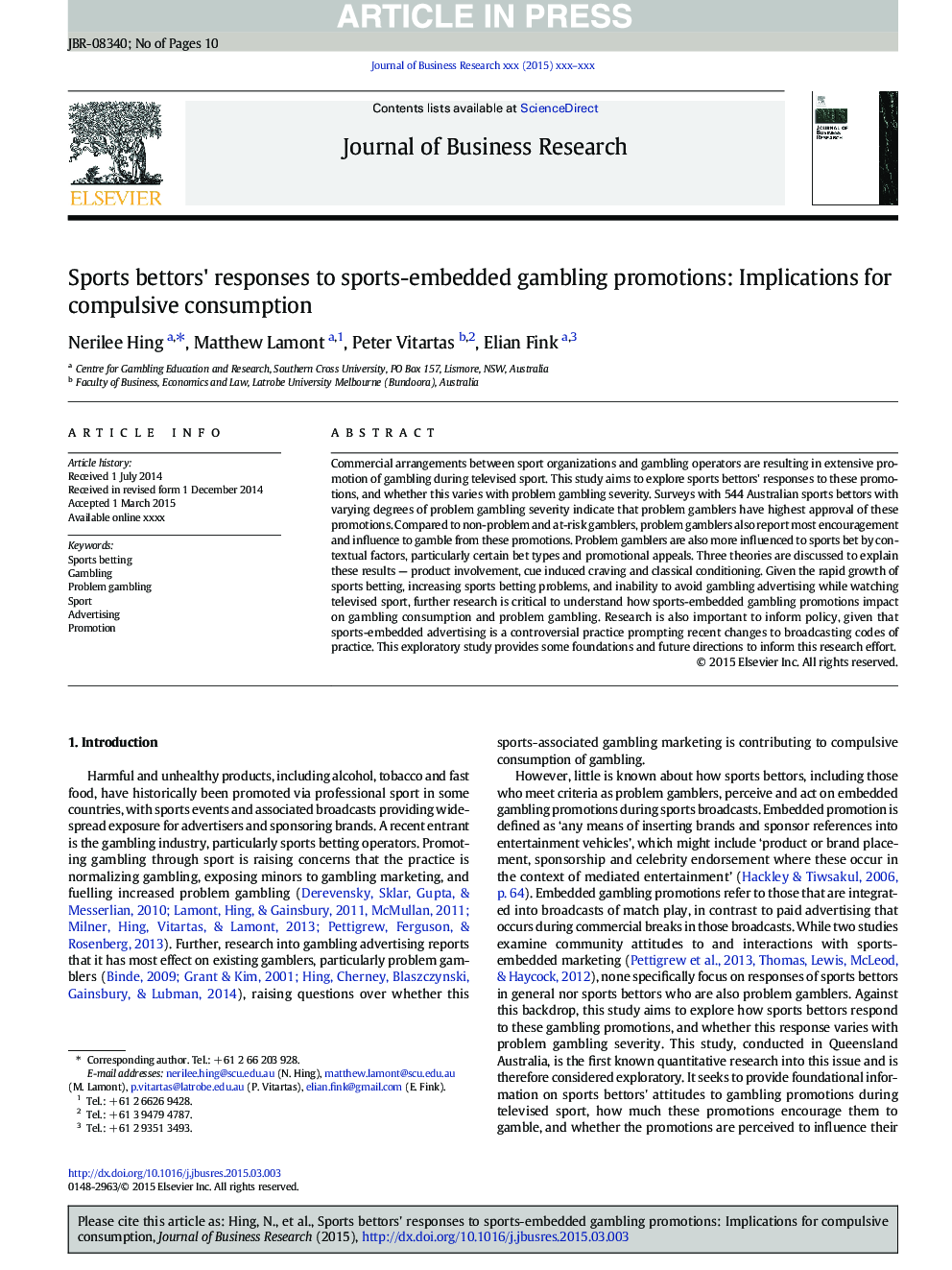| Article ID | Journal | Published Year | Pages | File Type |
|---|---|---|---|---|
| 10492913 | Journal of Business Research | 2015 | 10 Pages |
Abstract
Commercial arrangements between sport organizations and gambling operators are resulting in extensive promotion of gambling during televised sport. This study aims to explore sports bettors' responses to these promotions, and whether this varies with problem gambling severity. Surveys with 544 Australian sports bettors with varying degrees of problem gambling severity indicate that problem gamblers have highest approval of these promotions. Compared to non-problem and at-risk gamblers, problem gamblers also report most encouragement and influence to gamble from these promotions. Problem gamblers are also more influenced to sports bet by contextual factors, particularly certain bet types and promotional appeals. Three theories are discussed to explain these results - product involvement, cue induced craving and classical conditioning. Given the rapid growth of sports betting, increasing sports betting problems, and inability to avoid gambling advertising while watching televised sport, further research is critical to understand how sports-embedded gambling promotions impact on gambling consumption and problem gambling. Research is also important to inform policy, given that sports-embedded advertising is a controversial practice prompting recent changes to broadcasting codes of practice. This exploratory study provides some foundations and future directions to inform this research effort.
Related Topics
Social Sciences and Humanities
Business, Management and Accounting
Business and International Management
Authors
Nerilee Hing, Matthew Lamont, Peter Vitartas, Elian Fink,
